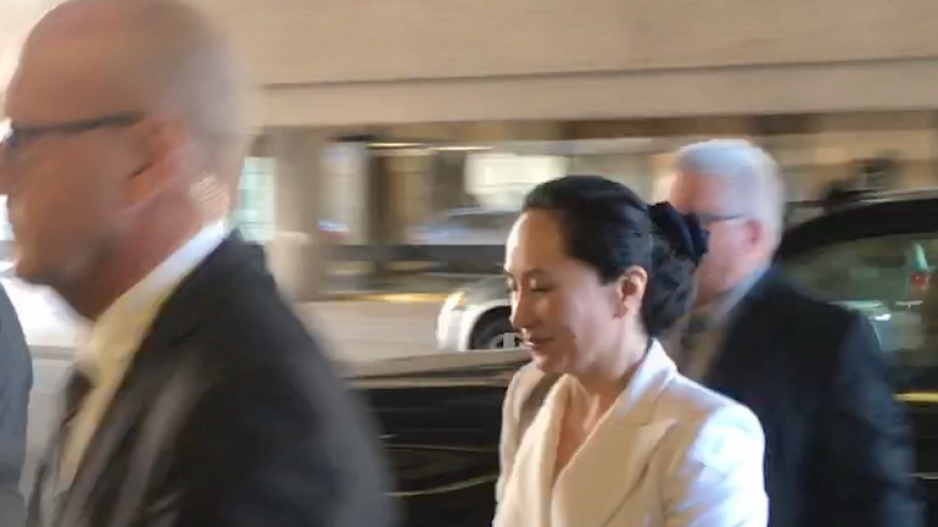Day 3 of the extradition hearing for Huawei Technologies Co. Ltd. CFO Meng Wanzhou takes place today in Vancouver, with the Crown starting its counter-arguments on the topic of double criminality.
On days 1 and 2, Meng’s lawyers centred efforts on painting the charges against the Huawei executive as being based on U.S. sanctions against Iran. As Canada has “repudiated” the sanctions, violating them would not be an arrestable crime in Canada, thus failing the double criminality requirement for extradition.
Meng’s lawyers also brought up topics such as Canada maintaining its legal sovereignty in not enforcing American laws within its borders, as well as whether HSBC — the bank which allegedly handled Huawei’s proceeds from Iran unknowingly —  would be subject to a risk of economic loss if the sanctions do not exist.
Most of judge Heather Holmes’ questions on the first day focused on whether Meng’s alleged conduct, if true and happening completely within Canada’s jurisdiction, would lead to a viable domestic fraud charge. Holmes also questioned whether the defence thinks all aspects of a fraud case need to be within Canadian legal jurisdiction in order for a fraud case to stand.
On Wednesday, Crown prosecutor Robert Frater delivered a scathing rebuttal to defence claims of the core offence being U.S. sanctions: “Ours is not a complex theory; lying to a bank [resulting in risk of deprivation] is fraud.”
While Frater touches on Holmes’ role as extradition judge to focus on the Canadian side of the law on fraud — thus making “double criminality” a “misnomer” because her purview is really “Canadian criminality” — the focus of the morning discussion was HSBC’s own review of whether to continue taking Huawei as a client when news first broke of the Skycom-Iran connection.
Frater argues that chief among the review was the potential reputational risk to HSBC of doing business with a client linked to Iran — and the bank’s fears were eventually assuaged by Meng’s alleged misrepresentation that Skycom isn’t linked to Huawei, resulting in loans and other banking services being continued.
“The fact that Skycom is linked to Huawei would have affected HSBC’s decision to continue providing banking services to Huawei,” the Crown lawyer said, adding the fact that Ottawa endorsed business ties to Iran in repudiating the U.S. sanctions is irrelevant.
“The defence can say that the Canadian government encouraged business with Iran, but what the government wants is of no concern to businesses when assessing reputations risk,” the Crown said. “Their concern is, will taking this business cause us to lose other business?”
Frater wrapped up the argument Wednesday that the court must "reject the rigidity" of transposing U.S. laws in a Canadian environment if the rigidity — in this case, the defence's request to transpose the entirety of facts from outside Canada in the Meng case but to do the exact opposite when it comes to foreign laws - if the result is "absurd."
"Canada would be home to every telemarketing scammer in the world if all elements of a crime must be in Canada in order for the court to prosecute," Frater said. "...The nature of the lie [from Huawei/Meng to HSBC] is that it's a lie about the law. There's no way to exclude that aspect of American law; as a necessity, you have to consider it."
Court will resume Thursday.



